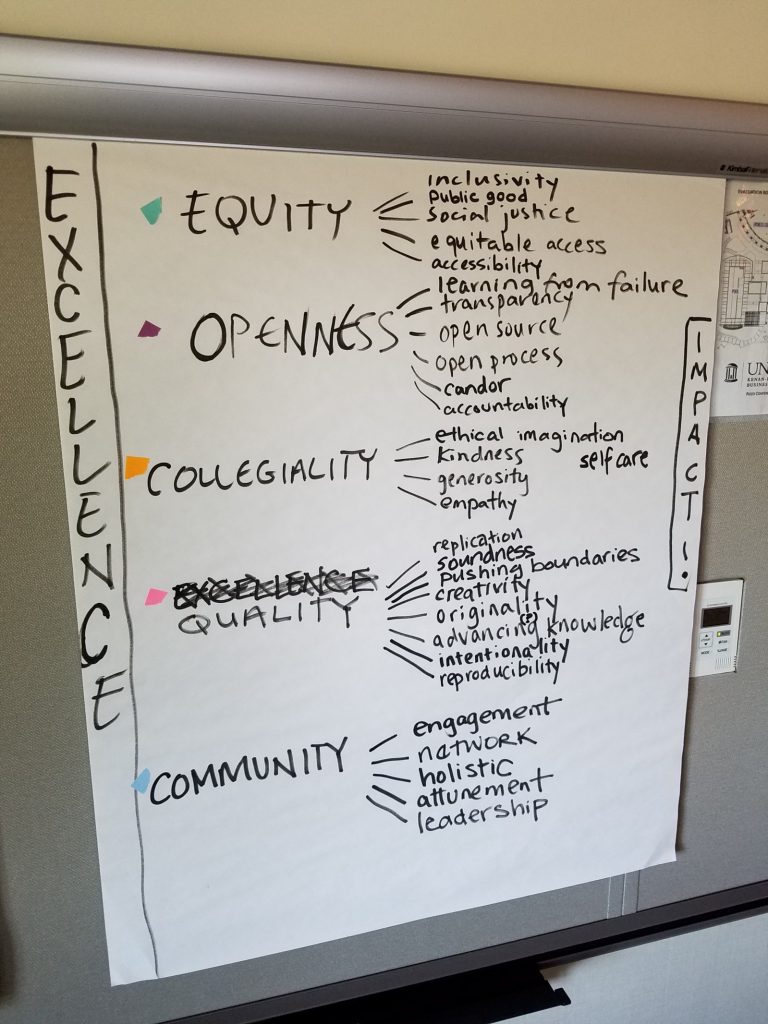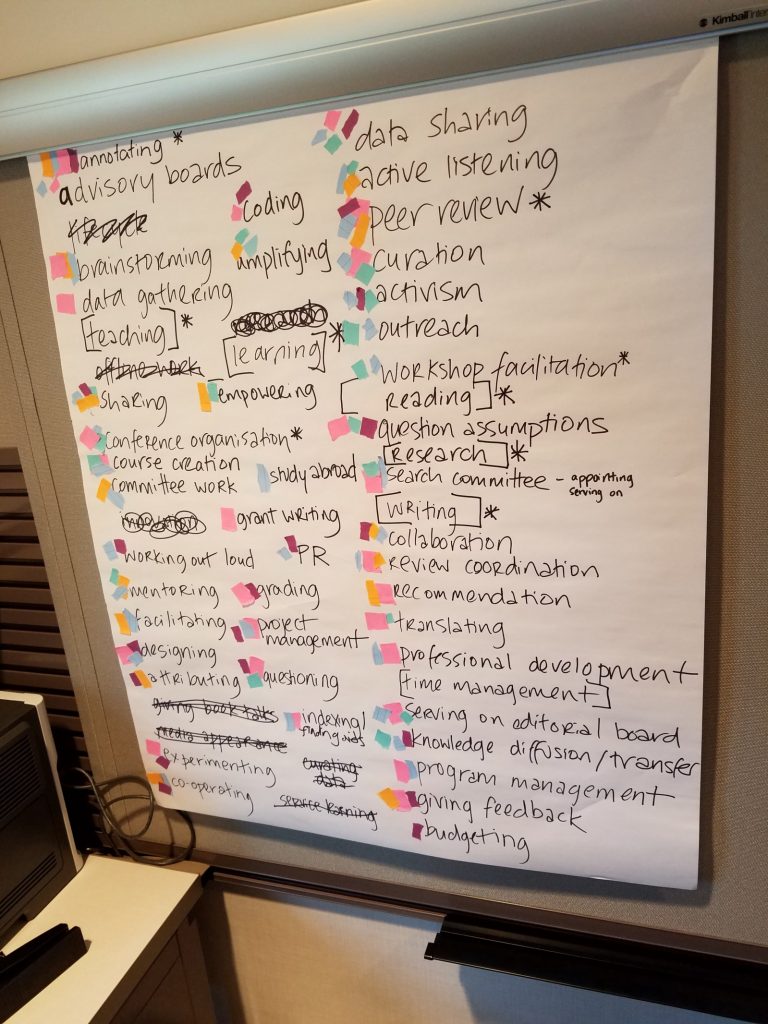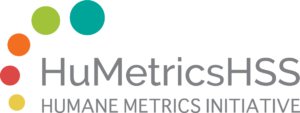Second day at #TriangleSCI with the #HuMetrics team. Today we focused on clustering our values into major value-categories (Equity, Openness, Collegiality, Quality, and Community) with the idea that excellence in scholarship is an expression and combination of these value-categories as they are embodied in scholarly practices. Here our mapping:

Here I am going to focus on “Openness” and the values we assigned there: accountability, candor, learning from failure, open process, open source, transparency.
Full disclaimer: we do not claim (yet) to be complete and comprehensive in this representation, but we do believe that in some form or another these values should drive and be encompassed by the practices of research and scholarship (especially in the humanities, of course, but, personally, I think the application of this exercise can be broader than that). We definitely welcome feedback and comments.
So, Openness… As a strong advocate for open practices in research and scholarship, I was fascinated by the breadth the of the account we are considering: openness not only in terms of outputs and the means to achieve them, but also openness in practices and attitudes toward other members of the community. Part of the exercise was also to assign these values to practices where we felt they were (even just aspirationally) an expression of such a value, and many of them seem to have an "open" component to them that should be nurtured and rewarded. (You see the pattern here? Going from values to practices such that we can identify metrics that would incentivize the expression of those values in the practices.) The following picture shows the exercise. For "openness," look for the burgundy stickers:

The next step is to operationalize some of these mappings in a way that would make the embodiment of values in the practices measurable. One possible approach: looking at the transactions and outputs of activities from a value perspective and scoring them higher when certain criteria are met (e.g., scoring higher those research outputs that are made OA, or valuing when data are curated for sharing and reuse or when participation in a collaboration is supported and sustained by open and transparent processes).
Stay tuned, as we still have two days of work ahead of us.
Follow team #HuMetrics as we wrestle with humanities metrics. We are Christopher Long, Rebecca Kennison, Stacy Konkiel, Simone Sacchi, Jason Rhody, and Nicky Agate, and we’ll be writing here all week.
